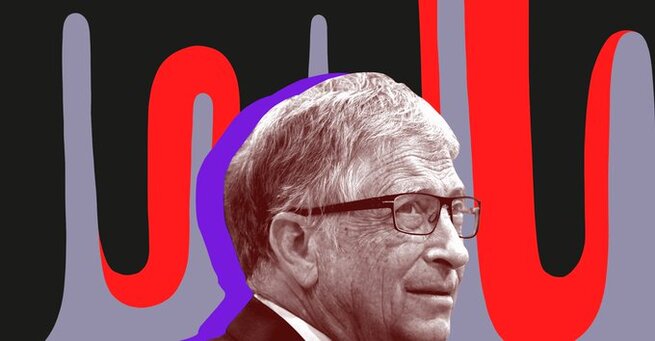
If you’re searching for why Bill Gates criticized Elon Musk over global health funding, or how USAID cuts could impact child mortality, this latest controversy offers critical insights. During a candid interview with The New York Times, Gates directly blamed Elon Musk for slashing USAID budgets — a move Gates claims could lead to an alarming rise in childhood deaths globally. Using the platform to address these severe humanitarian concerns, Gates didn't hold back on highlighting what he views as catastrophic policy decisions from influential tech leaders and politicians.
Bill Gates openly expressed dismay at what he described as "stunning reductions" to USAID funding, linking the cuts to an expected surge in childhood mortality. Speaking to The New York Times, Gates pointed out that childhood deaths, which were projected to decline from five million to four million annually, could now tragically rise to six million without major policy reversals. His remarks carry significant weight, especially as global health funding and humanitarian aid are frequent topics of debate among policymakers, philanthropists, and tech billionaires.
Earlier this year, Gates had praised former President Donald Trump’s engagement during a lengthy three-hour dinner conversation. However, any initial optimism quickly faded. Months after their meeting, Trump, alongside tech mogul Elon Musk—appointed as a government "efficiency czar"—aggressively cut into federal budgets, including USAID, shocking Gates and his foundation’s leadership. These budget cuts, Gates argued, were far deeper than anticipated, reaching an estimated 80% reduction instead of the modest 20% cut he had feared.
The Gates Foundation, one of the world's largest charitable organizations, has long been a major force in fighting global poverty and disease. The announcement that Gates plans to wind down the foundation over the next two decades coincided with his sharp criticism of Musk’s role in budget decisions. Gates told The New York Times that Elon Musk essentially "put [the USAID budget] in the wood chipper," suggesting a reckless disregard for the world’s most vulnerable populations.
When the topic of Musk’s commitment to the Giving Pledge came up, Gates offered a backhanded acknowledgment, noting that participants technically have their entire lives to fulfill the pledge. “So who knows?” Gates mused. “He could go on to be a great philanthropist. In the meantime, the world’s richest man has been involved in the deaths of the world’s poorest children.” The juxtaposition of Musk’s astronomical wealth against the preventable deaths of millions of impoverished children painted a stark and unsettling picture.
Despite the grim warnings, Gates is doubling down on his commitment to philanthropy. He announced that he plans to give away 99% of his wealth by 2045, with the Gates Foundation officially closing its doors on December 31st of that year. His legacy, he hopes, will be one of transformational global change—focused on saving lives, improving healthcare infrastructure, and investing in human development where it's needed most.
The heated exchange between Gates and Musk highlights a deeper battle over the responsibilities of billionaires in shaping the world’s future. With philanthropy, global health, childhood mortality, and humanitarian funding hanging in the balance, this story underscores the real-world consequences of political and financial decisions made by the world’s elite. Whether Gates' dire predictions will materialize—or inspire urgent action—remains to be seen.
𝗦𝗲𝗺𝗮𝘀𝗼𝗰𝗶𝗮𝗹 𝗶𝘀 𝘄𝗵𝗲𝗿𝗲 𝗿𝗲𝗮𝗹 𝗽𝗲𝗼𝗽𝗹𝗲 𝗰𝗼𝗻𝗻𝗲𝗰𝘁, 𝗴𝗿𝗼𝘄, 𝗮𝗻𝗱 𝗯𝗲𝗹𝗼𝗻𝗴. We’re more than just a social platform — from jobs and blogs to events and daily chats, we bring people and ideas together in one simple, meaningful space.